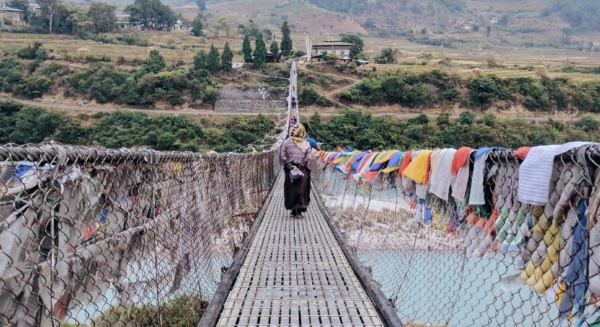Bhutan’s Role in South Asian Politics: Shaping Neighboring Areas

When we say a Bhutan Tour, we often think about Bhutan Villages, its lush landscapes, majestic mountains and rich cultural heritage, but all of this becomes possible through Bhutan’s Role in South Asian Politics.
In the frequently violent landscape of South Asian politics, Bhutan shines as an example of peace and sustainability. This Himalayan nation is a major player in serving the political environment of the region because of its rich history, dedication to Gross National Happiness (GNH), neutral foreign policy, and proactive attitude to environmental conservation. In this post, we will explore Bhutan’s historical background, and its involvement in regional peace initiatives, highlighting Bhutan’s role in South Asian Politics.
Bhutan’s Contribution to South Asian Politics: – H2
1. Historical Background – H3
Bhutan’s journey into the modern age has been defined by the monarchy’s foundation as well as significant political developments that have influenced the country’s identity.
Since 1907, the Wangchuck dynasty has ruled Bhutan, and it is the main source of peace and security in the nation.
Bhutan experienced continuous political reforms and democratic transitions under the guidance of succeeding rulers, resulting in the establishment of a parliamentary system in 2008.
Bhutan has never compromised its dedication to democracy and national identity, whether it was opposing British colonial rule or welcoming globalization.
The royal family has been able to maintain its unique cultural legacy and customs while managing the challenges of modernization.
2. Gross National Happiness (GNH) – H3
The idea of Gross National Happiness (GNH) is the core of Bhutan’s socioeconomic philosophy.
GNH is a measurement of Bhutan’s overall well-being, it considers aspects like psychological health, maintaining culture, environmental sustainability, and good democracy.
Living a happy life is a major principle influencing government goals and strategies in Bhutan.
Bhutan aims to ensure a sustainable future by balancing economic development and emotional happiness, rather than just focusing on GDP growth.
Bhutan’s Role in South Asian Politics is significantly important because of the way the nation operates.
3. Foreign Relations and Neutrality – H3
Bhutan’s foreign policy is defined by a strong commitment to neutrality and non-alliance reflecting its dedication to Gross National Happiness.
Bhutan has maintained its independence through keeping a policy of careful interaction with the outside world, despite being situated between the two dominant countries in the region, China and India.
Bhutan has avoided getting involved in geopolitical disputes or forming military alliances. Rather, the kingdom prefers to foster friendly relationships with all countries while maintaining its own values.
Bhutan’s reputation as a trustworthy and neutral partner in international affairs has grown as a result of this strategy.
The idea of “One Nation, One People,” which highlights the unity of the Bhutanese people, serves as the foundation for Bhutan’s foreign policy.
As the government of Bhutan seeks to promote peace, stability, and mutually beneficial relationships in the area and beyond, this inclusive mentality influences Bhutan’s relations with neighbouring countries as well.
4. Environmental Conservation – H3
Bhutan stands out as an example of environmental sustainability in an era of growing industrialization and environmental destruction.
Bhutan remains committed to protecting its natural resources for future generations, acknowledging its pristine landscapes, rich biodiversity, and clean air and water.
According to the kingdom’s constitution, forests must always occupy at least 60% of the country’s total land area.
Bhutan also puts a high priority on renewable energy sources, and most of its electricity is produced using hydropower.
Bhutan’s role in south asian politics also includes actively participating in international campaigns to fight climate change and promote sustainable development.
The kingdom has pledged to remain carbon neutral and has spearheaded initiatives such as the Bhutan for Life project, which seeks to secure long-term funding for conservation efforts.
Bhutan’s priority to environmental preservation protects both its natural legacy and its reputation as a responsible member of the global community.
5. Bhutan’s Participation in Peace Initiatives – H3
Bhutan frequently takes part in regional organizations and projects targeted at promoting peace in South Asia, demonstrating its commitment to peace beyond its boundaries.
Bhutan has become an acknowledged peacemaker and discussion facilitator despite its tiny size.
Bhutan’s participation in the South Asian Association for Regional Cooperation (SAARC) is one prominent example of its involvement in regional peace initiatives.
Bhutan is one of the founding countries of SAARC and has worked for more connectivity and cooperation throughout the region, understanding the need for teamwork in addressing common issues.
Bhutan has been active in global forums, but it has also been important in resolving conflicts and promoting peace in the area.
Through its diplomatic efforts, the nation has contributed to a safer and more peaceful South Asia by reducing conflicts and building trust among its neighbouring nations.
By prioritising communication and working together above conflicts, Bhutan has shown that even the smallest countries can have a big impact on how the surrounding area develops.
Conclusion:
Bhutan’s role in South Asian politics is both unique and profound, despite its small size, Bhutan has emerged as an epitome of peace and stability in a region and surrounding area. It shows that peace and happiness are not only possible but also important for a sustainable future.



